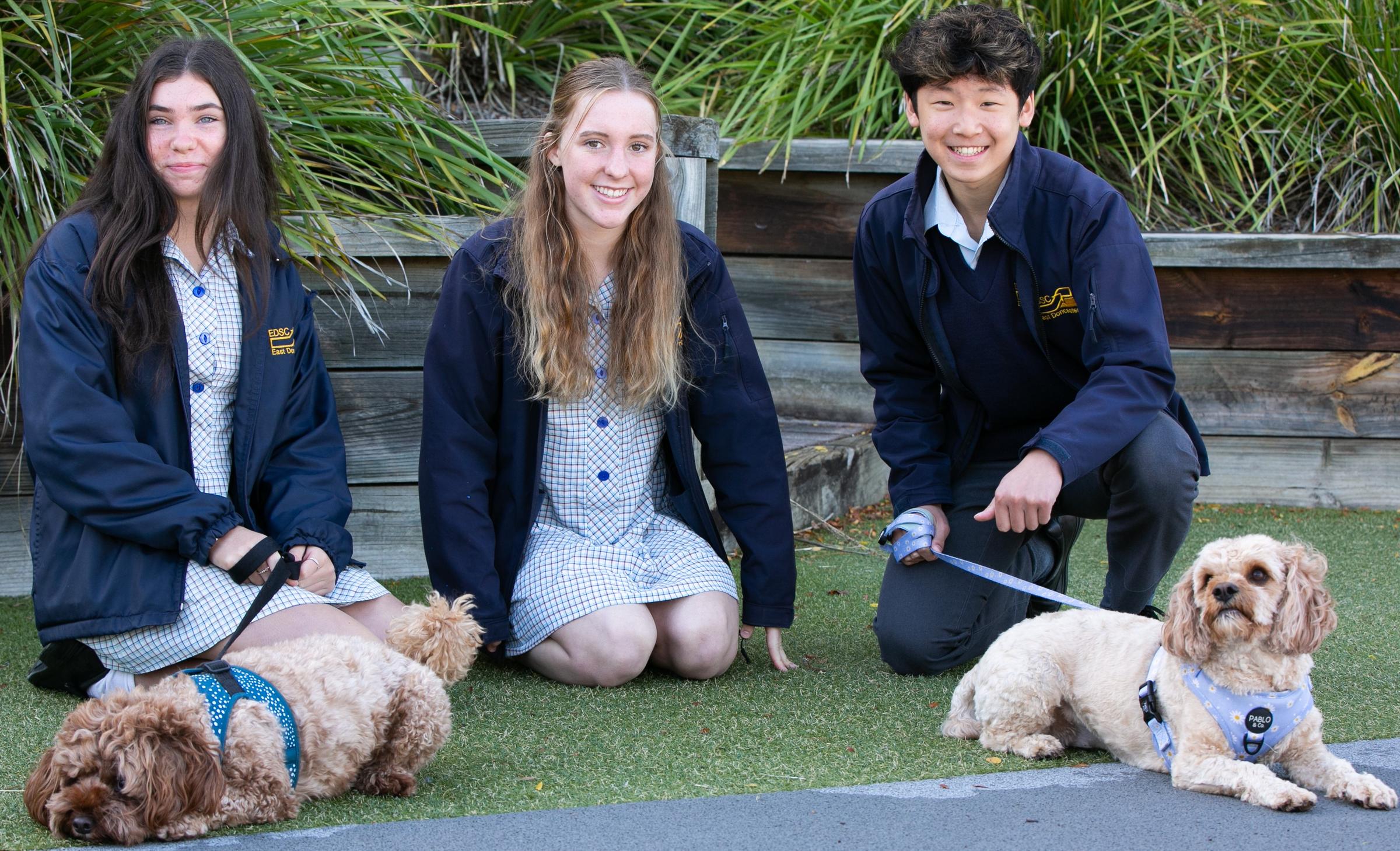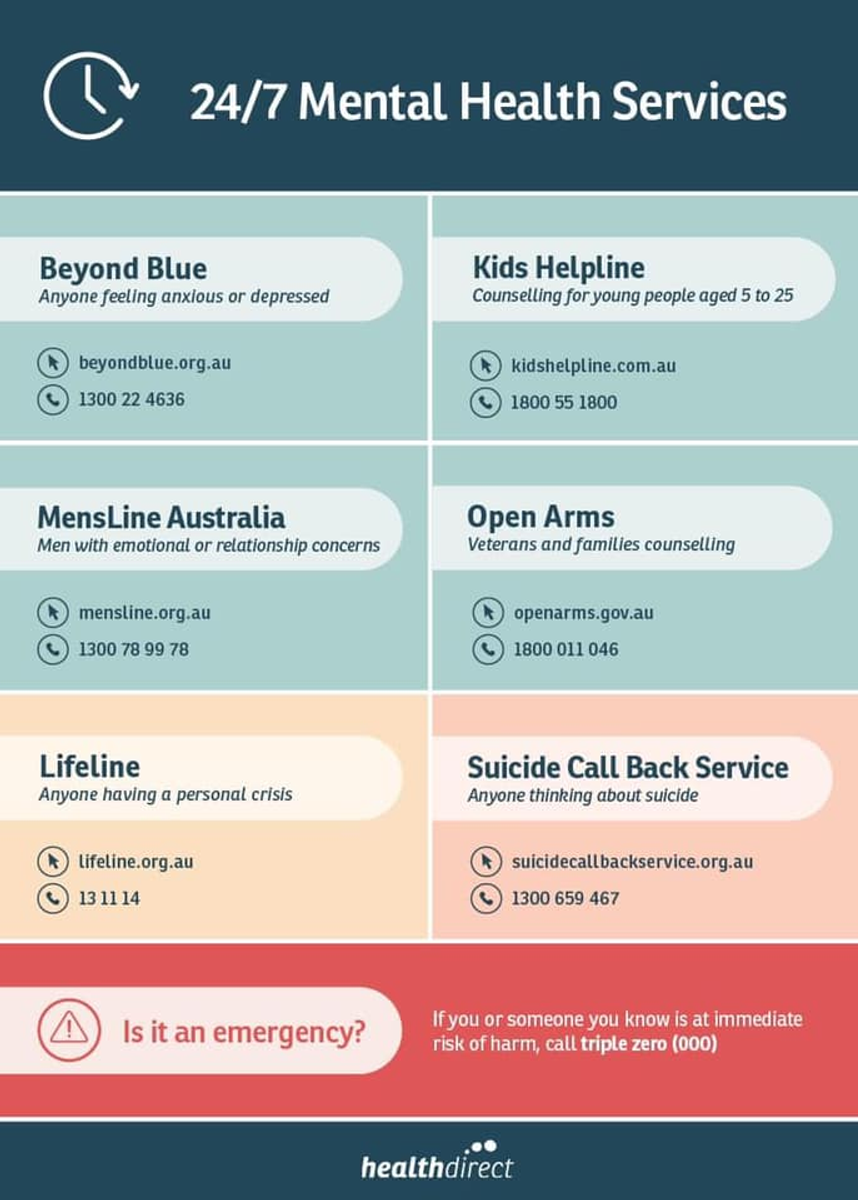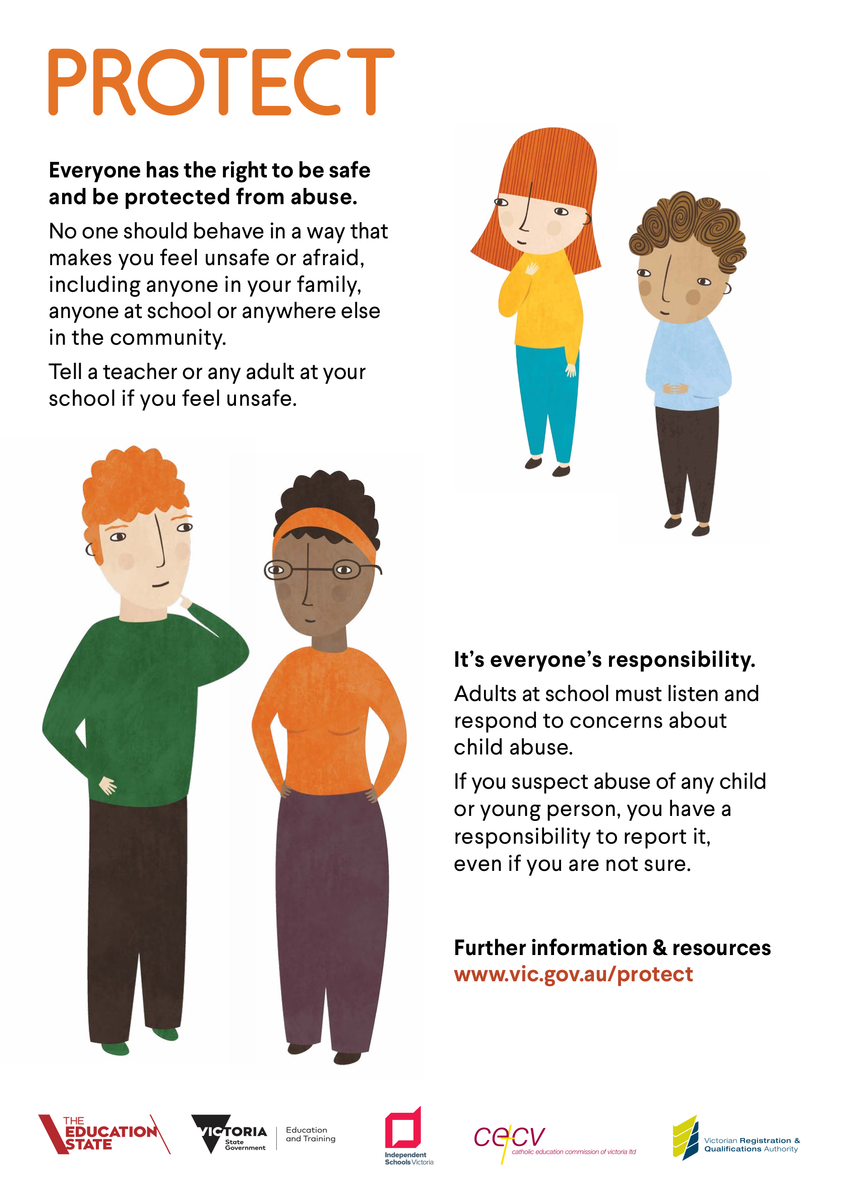Student Wellbeing News

Tips for Exam Stress
As everyone knows, some VCE subjects will begin in October, approximately 2-3 months before your final exams, which mark the end of your secondary school journey. This period can feel intense and stressful, especially knowing that VCE results can significantly impact your future. From a student wellbeing perspective, this stress is normal, though it can sometimes feel overwhelming. In this article, we’ll discuss exam stress and how we can harness it to achieve our goals.
众所周知,一些 VCE 科目将在十月份开始,大约在期末考试前的 2-3 个月。这段时间可能感觉紧张和压力大,尤其是知道 VCE 成绩对你未来的影响很大。从学生的心理健康角度来看,这种压力是正常的,尽管有时可能会感到难以应对。在本文中,我们将讨论考试压力以及如何利用它来实现我们的目标。
Helpful vs. Unhelpful Stress
有用的压力 vs. 无用的压力
Imagine you’re walking alone in the woods without any weapons, and suddenly you see a tiger’s footprint and hear some noise. How would you feel? Scared? Frightened? Now, imagine you didn’t feel anything, ignored your body's signals, and kept walking. If you’re lucky, you might be okay. If not, there’s a chance you could get hurt. This scenario illustrates that the right amount of stress can help you avoid danger.
想象一下,你独自一人在森林中行走,没有任何武器,突然看到老虎的脚印并听到一些声音。你会有什么感觉?害怕?恐惧?现在,想象一下你什么感觉都没有,忽略了身体的信号,继续前进。如果你幸运,可能会安然无恙。如果不幸,可能会受伤甚至被老虎袭击。这个场景说明适当的压力可以帮助你避免危险。将此应用到学习中,这里有一些有用的考试焦虑的迹象
Signs of Helpful Exam Anxiety:
- You get a small adrenaline boost, making you feel alert and ready.
- You feel more focused and attentive to your studies.
- You’re motivated to study hard and perform well.
有用的考试焦虑的迹象:
- 你会有少量的肾上腺素激增,让你感到警觉和准备就绪。
- 你会更加专注于学习。
- 你有动力努力学习并取得好成绩。
然而,如果你经历以下症状,这可能是过度压力的迹象:
Signs of Excessive Exam Anxiety:
- Intense physical symptoms like nausea, dizziness, sweating, shaking, shortness of breath, chest pain, loss of appetite, or a rapid heartbeat.
- Difficulty sleeping or experiencing restless nights.
- Feeling depressed, hopeless, or constantly in a low mood.
- Avoiding study sessions, procrastinating excessively, or skipping exams.
- Trouble concentrating or remembering things.
- Using alcohol, smoking, vaping, or other substances to distract yourself.
过度考试焦虑的迹象:
- 强烈的身体症状,如恶心、头晕、出汗、颤抖、呼吸急促、胸痛、食欲不振或心跳加快。
- 难以入睡或夜晚不安。
- 感到抑郁、绝望或持续低落的情绪。
- 避免学习、过度拖延或缺考。
- 难以集中注意力或记忆东西。
- 使用酒精、吸烟、电子烟或其他物质来分散注意力。
Strategies for Managing Exam Stress
- Prioritise Sleep: Consistently getting eight hours of sleep will help you feel rested, focused, and ready for exams. Consider improving your sleep hygiene with tips on how to get a good night’s sleep.
- Name It and Tame It: Identifying intense emotions (“naming”) can reduce the stress and anxiety (“taming”) that those emotions cause in your brain and body. E.g. I feel like I am really stressed now.”
- Talk to Someone: If you’re finding things difficult, talk to a friend, family member, or teacher who can offer support and perspective. You can also reach out to a mental health professional, like the Student Wellbeing team in school, who can help you develop strategies for managing exam anxiety or other mental health challenges.
In the end, it’s important to recognise that feeling stressed or anxious is normal and those emotion help us survive.
应对考试压力的策略
- 优先考虑睡眠:保持每晚八小时的睡眠将帮助你感到休息好、专注并为考试做好准备。可以考虑改善睡眠卫生,参考如何获得良好睡眠的建议。
- 命名: 识别强烈的情绪(“命名”)可以减少这些情绪对你的大脑和身体造成的压力和焦虑。例如:“我现在真的感到很有压力。”
- 与他人交谈: 如果你觉得困难,可以与朋友、家人或老师交谈,他们可以提供支持和视角。你也可以联系心理健康专业人士,比如学校的学生健康团队,他们可以帮助你制定应对考试焦虑或其他心理健康挑战的策略。
最后,重要的是要认识到感到压力或焦虑是正常的,这些情绪帮助我们生
Harry Lee
Student Wellbeing Coordinator
Support Your Child's Education with Free Internet at Home Until December 2025
The School Student Broadband Initiative (SSBI) is a Federal Government initiative offering free home internet to 30,000 unconnected households with school-aged students. Households have until Tuesday 31 December 2024 to apply. Free services will continue until 31 December 2025.
The initiative seeks to boost educational opportunities and narrow the digital divide.
To be eligible, households must:
- have a child living at home that is enrolled in an Australian school (up to year 12 including Prep)
- not have an active NBN Co. network internet service at home (excludes mobile internet services)
- live in a premises that can access the NBN Co. network via a standard connection
- not have had an active NBN Co. connection during the previous 14 days.
To be assessed, please contact the NBN National Referral Centre on 1800 954 610 or visit anglicarevic.org.au/student-internet to request a call back. Please note:
- NBN will check your nominated home address for an active NBN connection.
- You do not need to provide financial information.
- Translation and interpretation services are available.
Some families might also be contacted via their school with information about how to apply. The Victorian Department of Education has been working with the NBN to review Victorian school student home addresses. Only home addresses have been provided to NBN to check. No other personal information has been shared with NBN. NBN handles this data in accordance with privacy law.
Find out more
- Department of Education SSBI webpage for parents and carers: School Student Broadband Initiative: information for parents and carers
- For more information on the SSBI, visit the Department of Infrastructure, Transport, Regional Development, Communications and the Arts website.
EDSC Community Kitchen: Serving our Community with Heartfelt Meals
In the spirit of compassion and togetherness, we are partnering with Neuma Church in launching a Community Kitchen - dedicated to providing nourishing meals to families facing challenges in our community. Whether it's due to financial hardships, medical concerns, single parenting, loss of loved ones, or simply being overwhelmed with commitments, we are here to offer support and comfort through our meals.
How We Help
Our mission is to ensure that no family goes hungry and that everyone in our community receives a warm, home-cooked meal when they need it most. Our dedicated volunteers prepare and distribute meals with care, aiming to bring relief and a sense of belonging to those who are struggling.
Join Us in Making a Difference
We invite you to be a part of this heartfelt initiative. Whether you have a passion for cooking or simply want to lend a helping hand, your involvement can make a significant impact. There are numerous ways you can contribute:
- Join Our Cooking Sessions: Participate in one of our group cooking sessions, where you can cook and share a meal together (set dates)
- Prepare Meals at Home: Cook meals in your own home at your own pace and bring to school to be stored in our central freezer until needed
- Financial Contributions: Your donations will help us purchase essential ingredients, takeaway containers, cooler bags, pantry items, and other supplies needed for our Community Kitchen.
- Donation of pantry goods
Get Involved
Are you ready to make a meaningful contribution? If you're interested in volunteering, cooking meals, or donating, we would love to hear from you. Please click on the link below to learn more about how you can join the Community Kitchen.
https://forms.gle/jEDVQMsqv6zp7XZ86
Together, we can create a community where everyone feels supported and cared for. Thank you for your commitment to helping those in need.
Amal Saleh-Zada
Director of Wellbeing
Let’s cook up some kindness and serve our community with love!
Cybersafety and Responsible Use of Digital Technologies
The following resources are available to parents and carers to assist them with guiding their children with the use of digital technology in a safe and responsible way. Parents and carers are their child's first role model when it comes to online behaviour. Please find information to assist parents and carers when dealing with Cybersafety issues:
https://www.esafety.gov.au/parents
https://www.education.vic.gov.au/parents/services-for-parents/Pages/parentline.aspx
https://www.esafety.gov.au/about-us/counselling-support-services
The following fact sheet may assist in encouraging the safe and respectful use of social media and to provide tips to parents for being a positive role model:
If parents/carers have any questions regarding Cybersafety or Digital Learnings in Schools and our Mobile Phone Policy, please contact Reception.
Cameron Campbell
Assistant Principal
Food & Financial Support
As we are all aware, the cost of living is increasing. We realise that this might be causing some distress to members of the EDSC community. If you are experiencing financial difficulties or food insecurity please look at the website www.askizzy.org.au. This website can help you locate services for food, money, clothing, health & housing in your area.
The College is able to provide a range of food to families within the community. Foodbank Victoria provide EDSC fresh fruit, cereals, milk, different types of ready meals, fruit cups and Messy Monkey snacks. If you and your family are experiencing food insecurity, please contact the school to arrange a food collection. For a confidential conversation, please call Maddie Sill on 9842-2244.
Please also note that if your child forgets their lunch they can come to the Wellbeing Hub to access the pantry.
Breakfast Club
The Wellbeing Team believes that offering high school students a Breakfast Club can significantly promote physical health, mental wellbeing, academic success, and a positive school culture.
The Breakfast Club will take place every Monday from 8:15 am to 8:45 am at the Wellbeing Hub.
All students are welcome to join us for free healthy breakfast options. A group of community volunteers will run the Breakfast Club, and we kindly ask that you show respect and appreciation for their time and effort.
When: Every Monday
Where: Wellbeing Hub
Who: All students are welcome
Time: 8:15 am – 8:45 am
Cost: Free
We hope to see you there and look forward to a great time!
Request for Uniform Donations
The Wellbeing Team provide second-hand uniforms for students in need. We are asking for uniform items, in good condition to be donated to the Wellbeing Team. Specifically, we are looking for dresses, shirts, pants, jackets and any sports uniform in larger sizes.
If you require uniforms for your child, please contact the Wellbeing Team for support.
Wellbeing Team
Wellbeing Staff
For more information about Wellbeing at the College, please visit the following link ..
Child Safety Standards
East Doncaster Secondary College is committed to the safety and wellbeing of all children and young people. This will be the primary focus of our care and decision making.
East Doncaster Secondary College has zero tolerance for child abuse.
East Doncaster Secondary College is committed to providing a child safe environment where children and young people are safe and feel safe, and their voices are heard about decisions that affect their lives. Particular attention will be paid to the cultural safety of Aboriginal children and children from culturally and/or linguistically diverse backgrounds, as well as the safety of children with a disability.
Every person involved in East Doncaster Secondary College has a responsibility to understand the important and specific role he/she plays individually and collectively to ensure that the wellbeing and safety of all children and young people is at the forefront of all they do and every decision they make.
In our planning, decision making and operations, all personnel at East Doncaster Secondary College will:
- Take a preventative, proactive and participatory approach to child safety;
- Value and empower children to participate in decisions which affect their lives;
- Foster a culture of openness that supports all persons to safely disclose risks of harm to children
- Respect diversity in cultures and child rearing practices while keeping child safety paramount;
- Provide written guidance on appropriate conduct and behaviour towards children;
- Engage only the most suitable people to work with children and have high quality staff and volunteer supervision and professional development;
- Ensure children know who to talk with if they are worried or are feeling unsafe, and that they are comfortable and encouraged to raise such issues;
- Report suspected abuse, neglect or mistreatment promptly to the appropriate authorities;
- Share information appropriately and lawfully with other organisations where the safety and wellbeing of children is at risk; and
- Value the input of and communicate regularly with families and carers.










